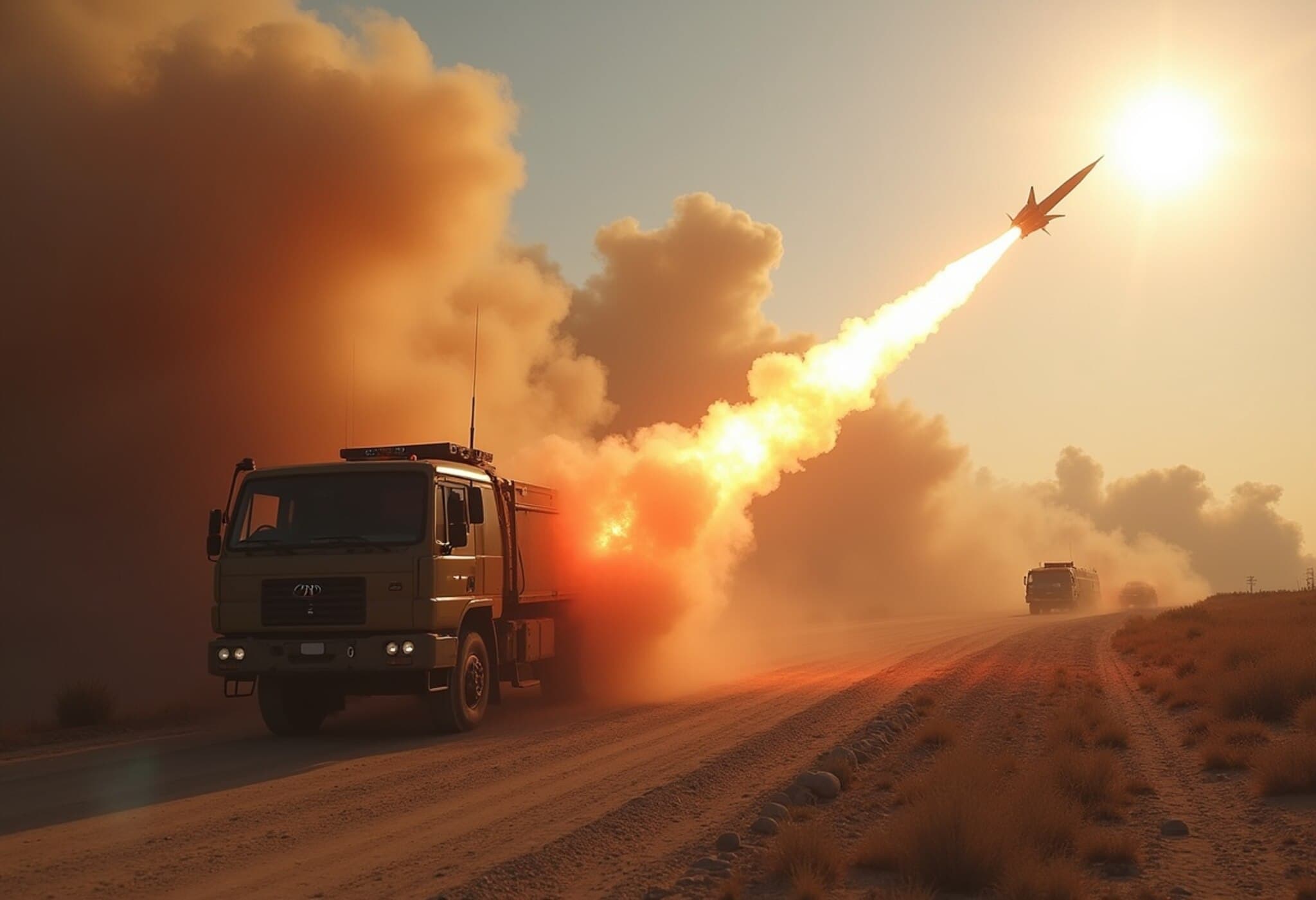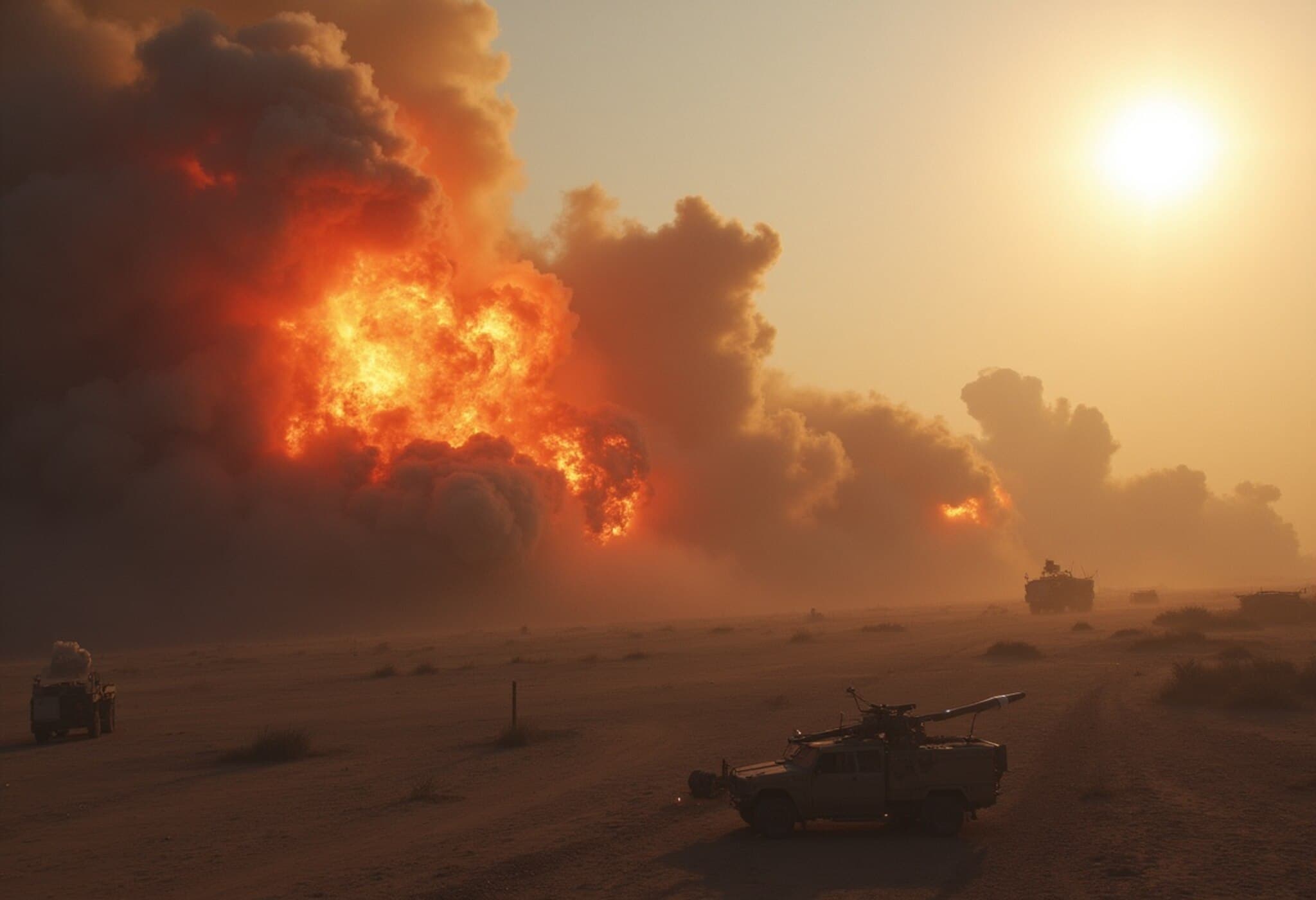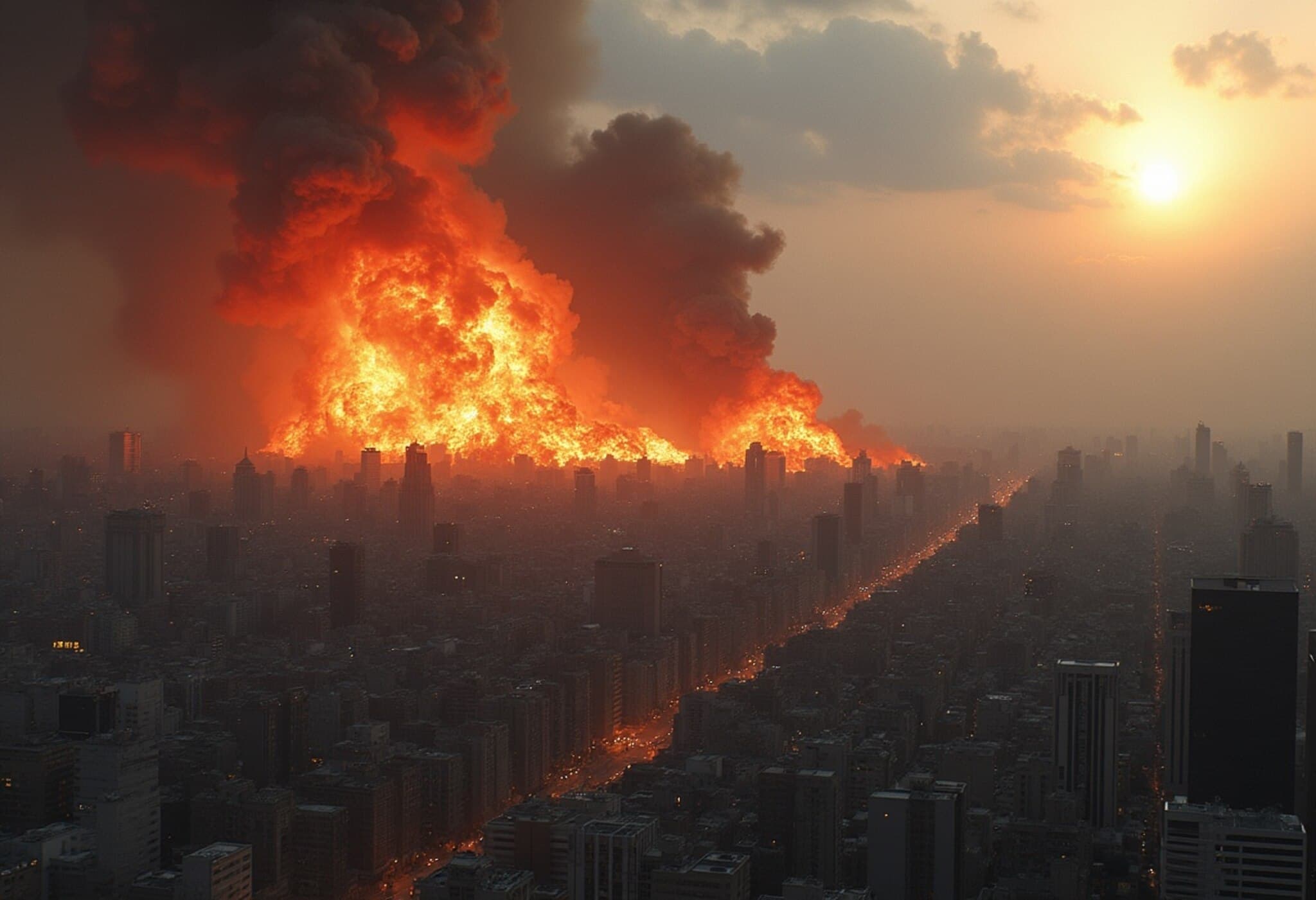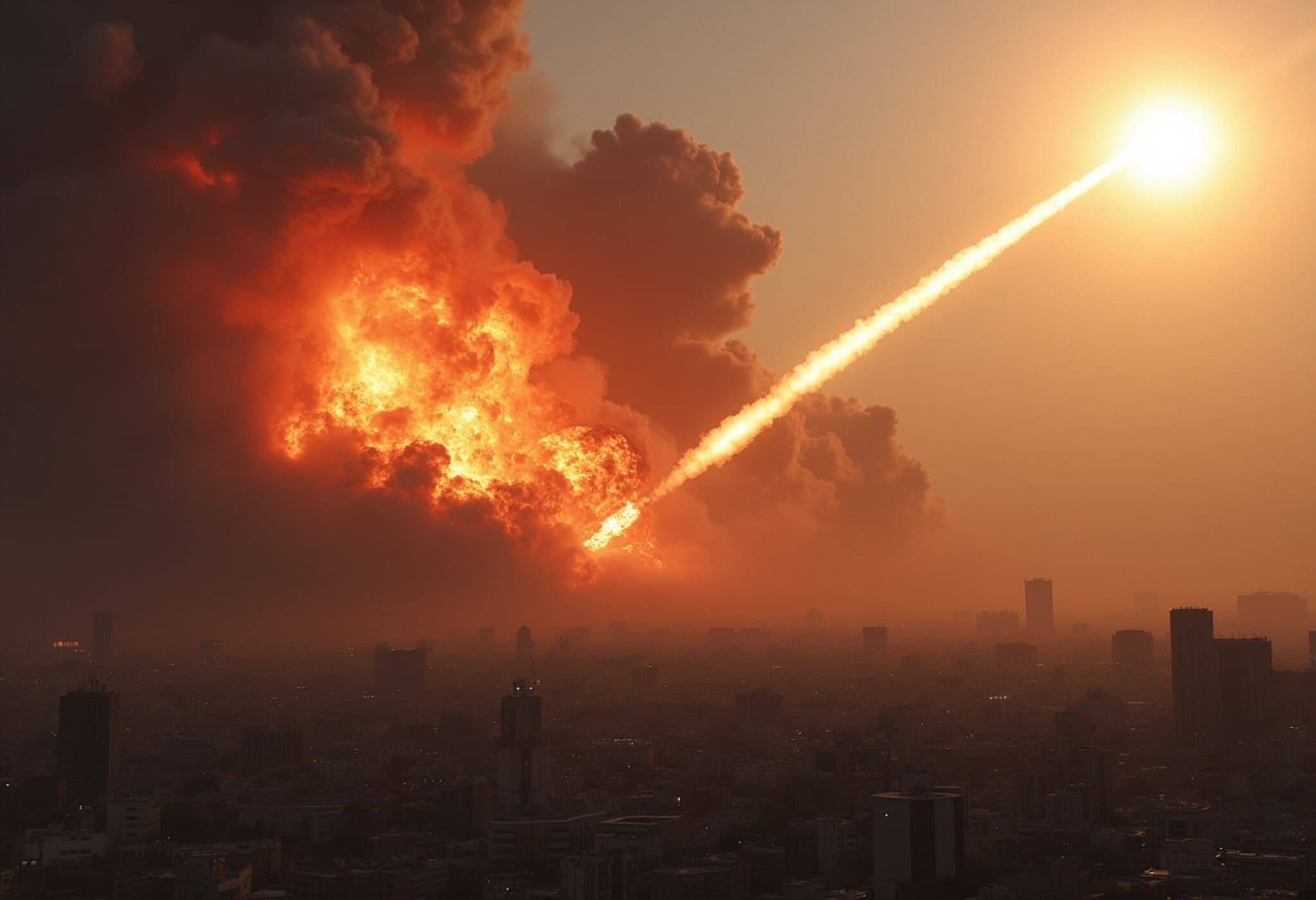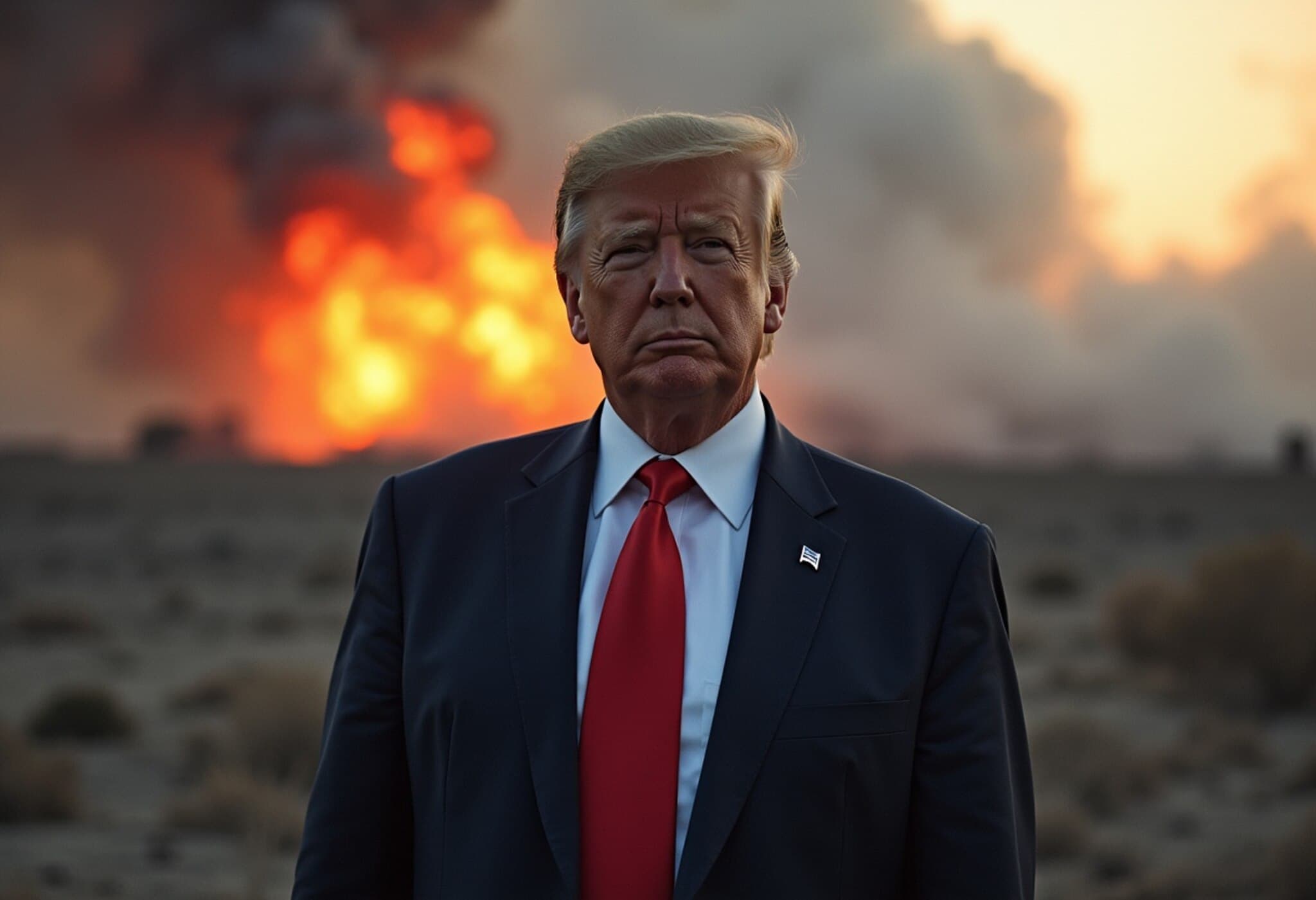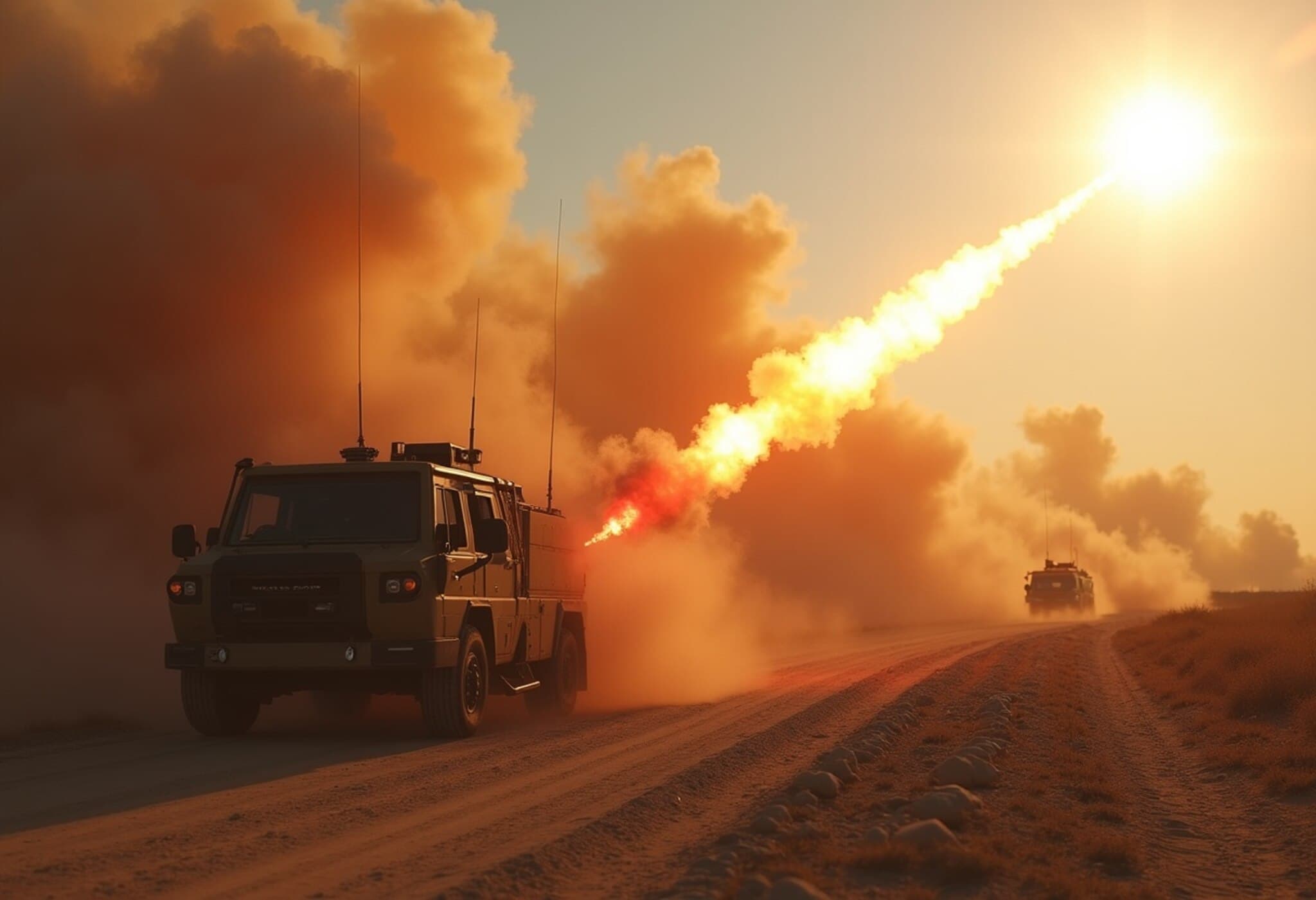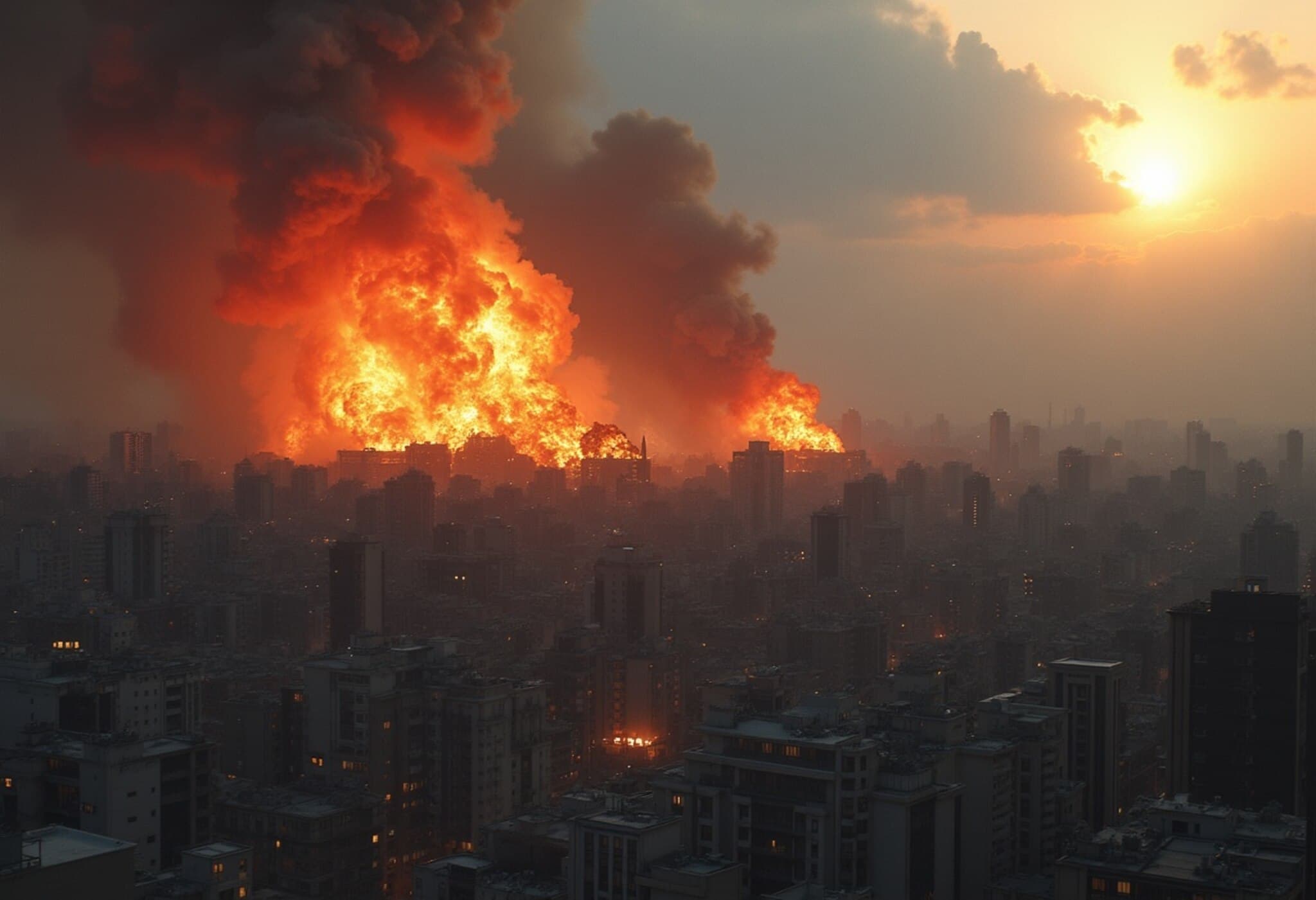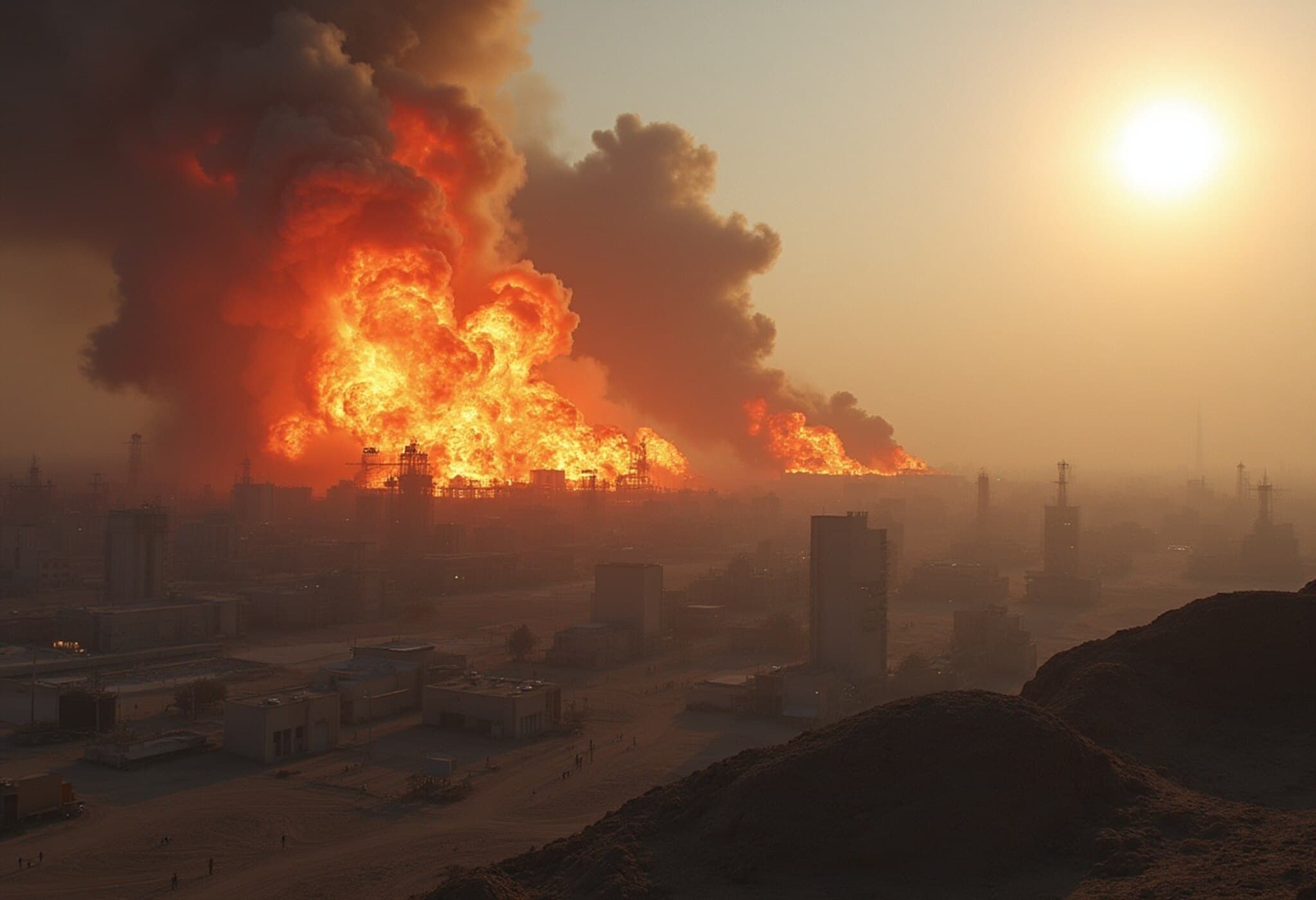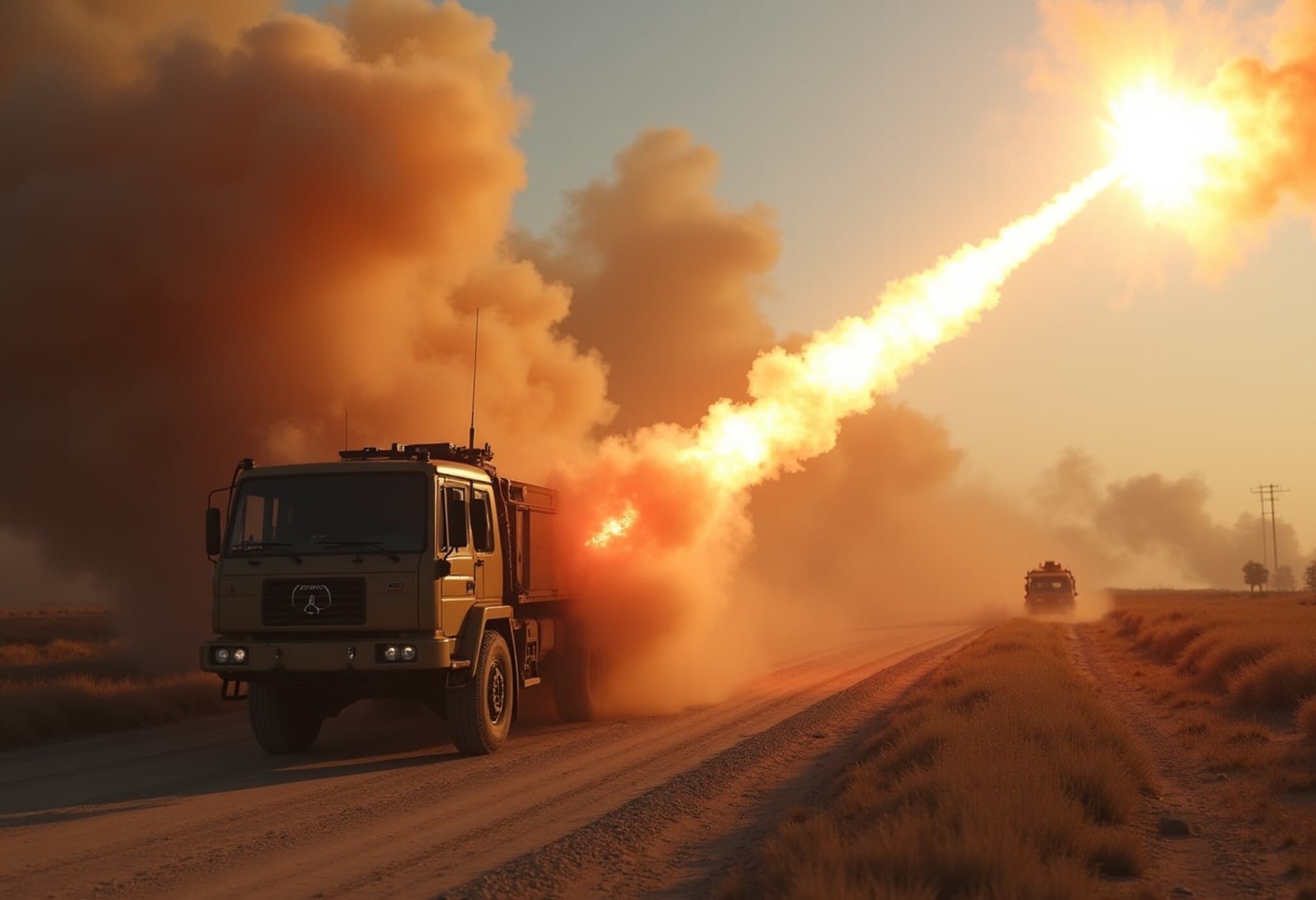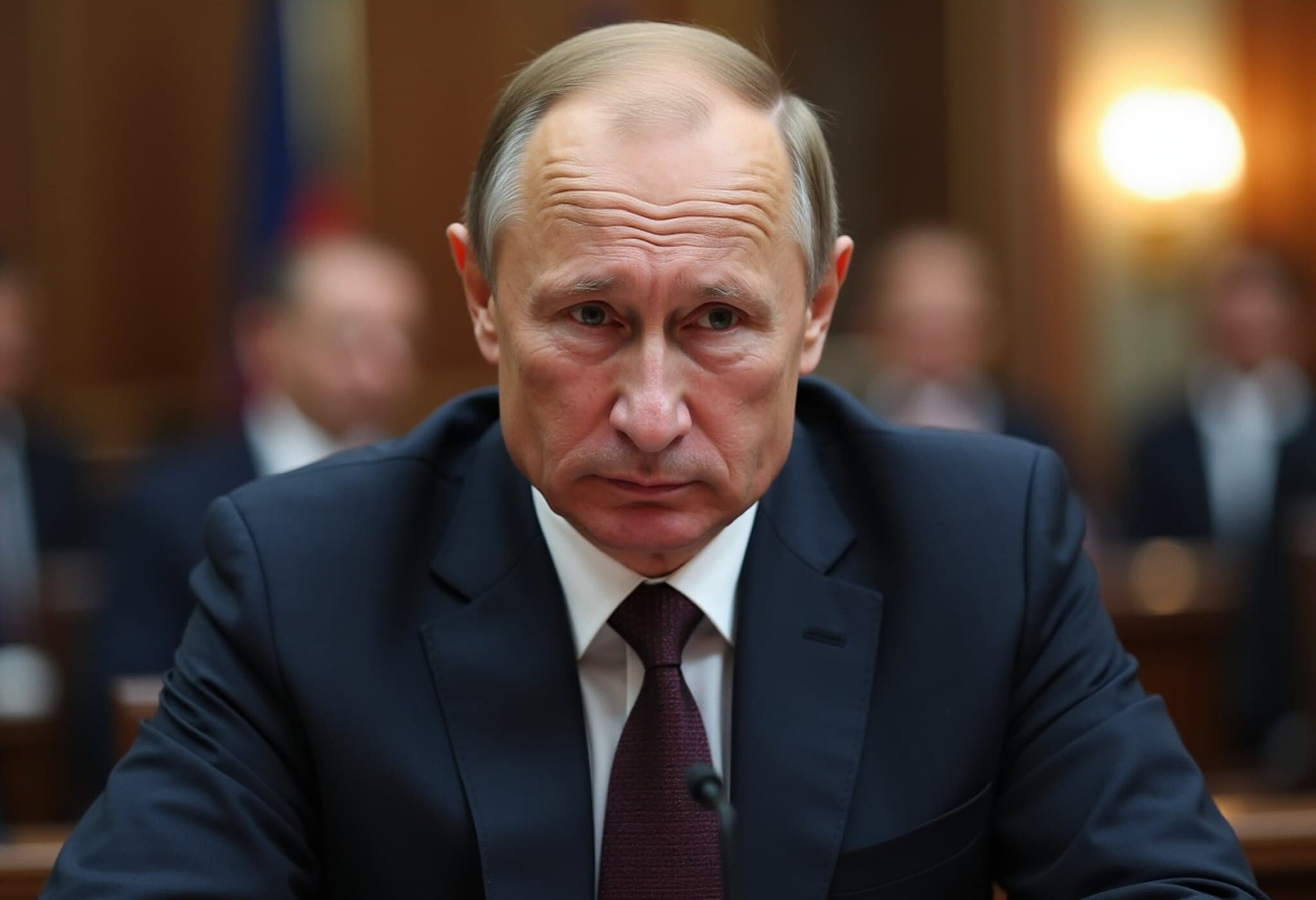Iran Launches Cluster Bomb Attack Amidst Rising Tensions
In a significant escalation of the ongoing conflict now entering its eighth day, Iran fired a missile armed with cluster munitions targeting central Israel. This marks the first reported use of such controversial weaponry in the current hostilities.
Missile Release and Impact Details
The missile reportedly burst open at an altitude of approximately 7 kilometers (4 miles), dispersing about 20 submunitions across a radius of nearly 8 kilometers (5 miles) over Israeli territory. One of these smaller bomblets struck a residential home in the town of Azor, situated near Tel Aviv, damaging property but fortunately causing no casualties.
Why Cluster Munitions Stir Controversy
Cluster bombs are widely criticized due to their indiscriminate nature. Upon detonation, they scatter numerous bomblets across a wide area, many of which can fail to explode immediately, leaving dangerous unexploded ordnance that poses a long-term threat to civilians long after active fighting ceases.
The Israeli military issued a public advisory highlighting the dangers of these unexploded remnants, underscoring the risks posed even after the conflict moves on.
Official Statements and Global Context
Brigadier General Effie Defrin, spokesperson for the Israeli Defense Forces, condemned the attack: “The terror regime seeks to harm civilians and has deliberately employed weapons with broad dispersal capability to maximize damage.”
Neither Iranian authorities nor the Israeli diplomatic mission in Washington provided immediate comments. International observers note that Iran’s use of such imprecise munitions guarantees harm to civilian areas, reflecting increasing brutality in this conflict.
Daryl Kimball, executive director of the Arms Control Association, described cluster bombs as “egregious weapons owing to their wide-area destructive effects, especially when deployed in populated regions.” He further emphasized that Iran’s documented missile inaccuracies will likely result in predominantly civilian casualties.
International Legal Standings on Cluster Munitions
Despite widespread condemnation, neither Iran nor Israel have adhered to the 2008 international treaty banning the production, stockpiling, transfer, and use of cluster munitions. This accord has been ratified by over 111 countries and 12 entities, signifying broad global opposition to these weapons.
Additionally, the United States controversially authorized cluster munitions for Ukraine’s military efforts against Russian forces in 2023, with both Russia and Ukraine reportedly deploying such weapons during their conflict.
What Lies Ahead
The deployment of cluster bombs in this ongoing conflict raises grave concern about escalating civilian suffering and long-term hazards from unexploded bomblets. As hostilities continue, the international community faces renewed challenges in addressing the use and consequences of these contentious armaments.

